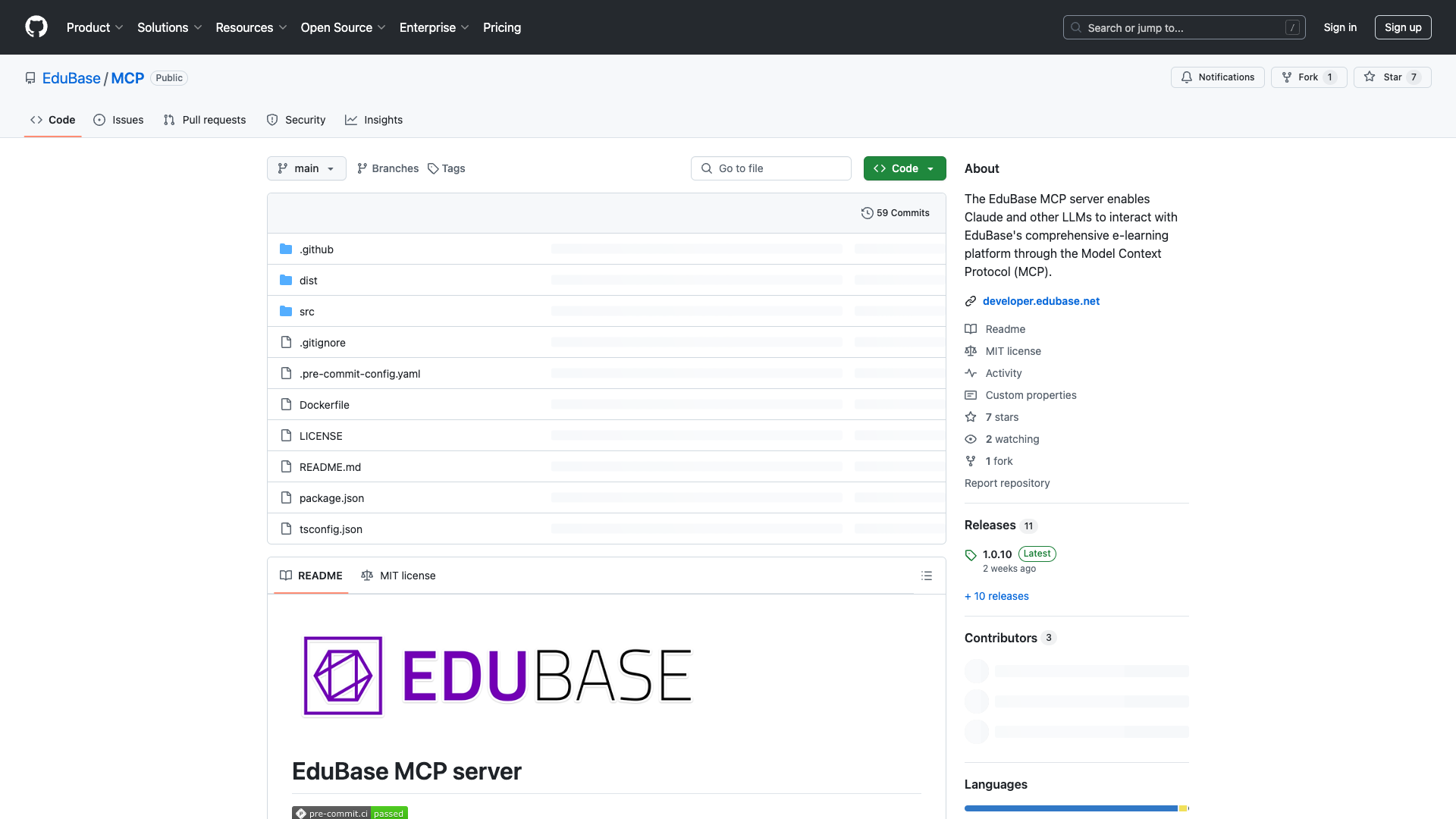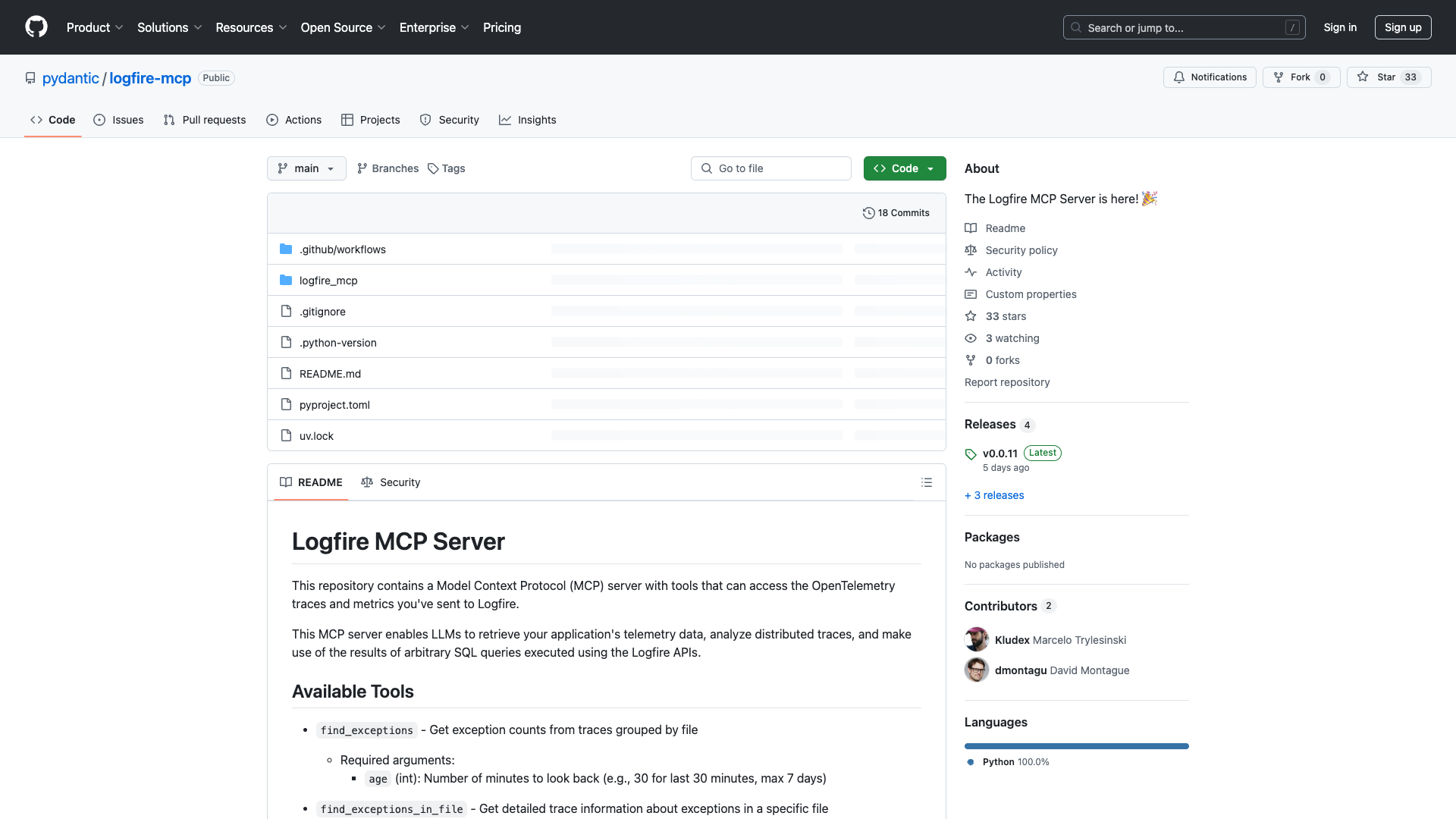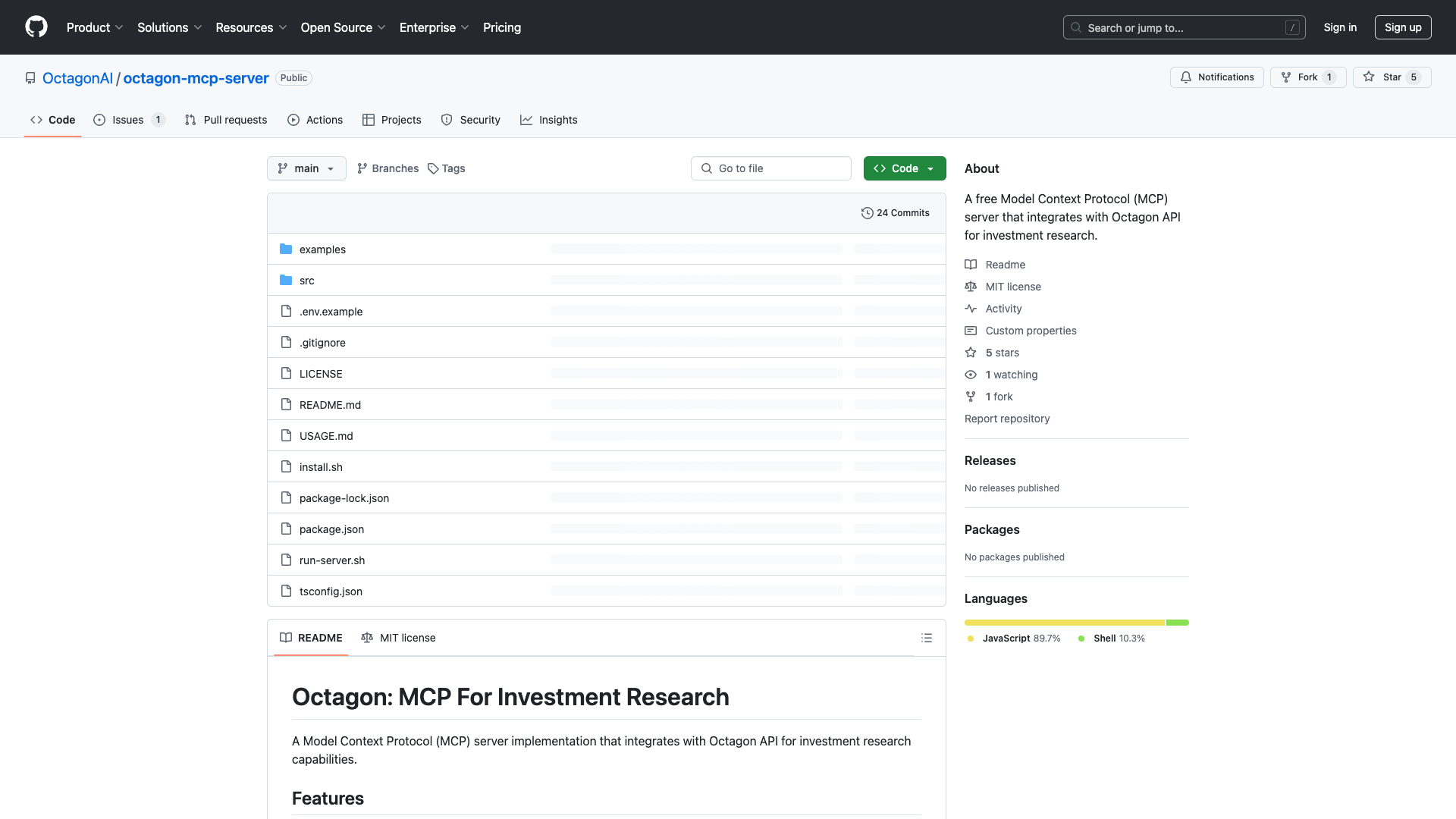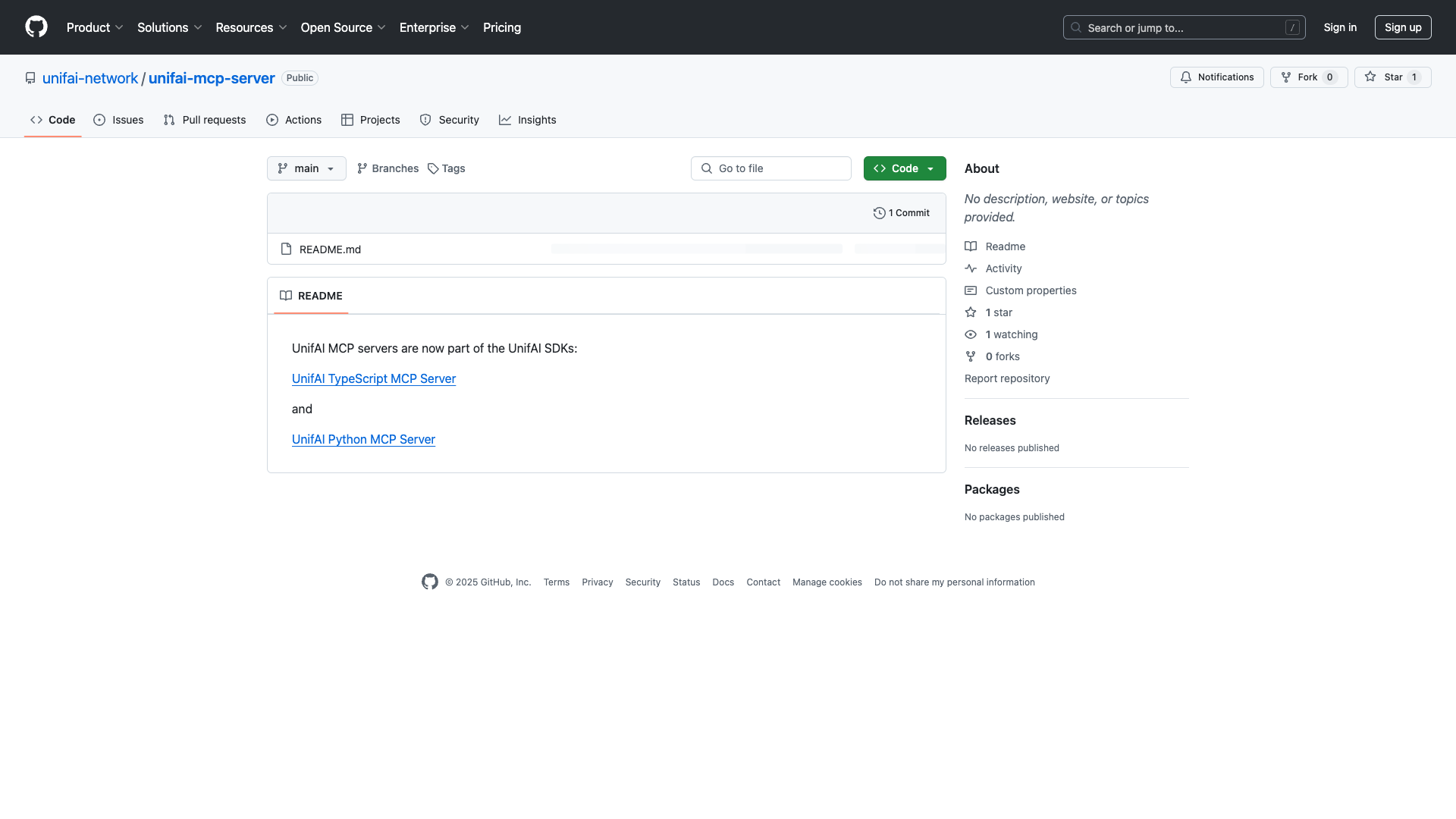Overview of EduBase MCP Server
The EduBase MCP Server is an innovative integration tool designed to bridge the gap between advanced language models like Claude and EduBase's comprehensive e-learning platform. This server is particularly beneficial for educational institutions and corporate training departments looking to enhance their learning content management while leveraging the power of AI.
Key Features
- Advanced Quiz System: The server supports the creation of parameterized questions, allowing for infinite variations and real-time cheating detection, which is crucial for maintaining academic integrity.
- Unified Learning Environment: Educators can centralize diverse educational materials—from videos to documents—into a single user-friendly interface, making resource management more efficient.
- Enterprise-Grade Security: With built-in Single Sign-On (SSO) integration and compliance with GDPR regulations, EduBase ensures that user data is secure and access is tightly controlled.
- AI-Assisted Tools: These tools allow for the transformation of traditional content into interactive assessments and provide capabilities for material translation, enhancing engagement in the learning process.
Setup Process
Setting up the MCP server is straightforward, especially for users familiar with Node.js or Docker. The documentation provides detailed configuration instructions in JSON format, ensuring users can adapt settings easily based on their specific needs. Here’s a brief outline of the setup steps:
- Install Node.js or Docker on your machine.
- Obtain your unique API URL, application ID, and secret key from your EduBase account settings.
- Follow the provided JSON configuration examples to set up your environment.
User Experience
From the perspective of a software developer, the initial setup was clear and concise, with well-defined options for both Node.js and Docker installations. The documentation aligns with the audience's preference for transparency in technical interactions. However, while the Advanced Quiz System is robust, some inconsistencies were noted in question generation, which could be improved to better align with educational standards.
The Unified Learning Environment effectively centralizes resources, but some users may find certain navigation elements less intuitive, suggesting that usability enhancements could improve overall satisfaction. The enterprise-grade security measures are commendable, instilling confidence in data protection, although they may require additional time for initial configurations.
The AI-assisted tools present exciting opportunities for educators, enhancing engagement and demonstrating a commitment to modernizing learning environments. However, the user experience could benefit from a more polished interface, as some elements feel less refined compared to other productivity tools.
Community Engagement
EduBase demonstrates a commitment to community engagement through collaborative efforts among educators and developers. The documentation hosted on GitHub fosters a community-driven approach to improving digital learning methodologies. However, the lack of public reviews may leave potential adopters uncertain about the server's performance and reliability. Increased visibility around user feedback and quality assurance metrics would be beneficial for future adopters.
Conclusion
In summary, the EduBase MCP Server offers significant potential for enhancing e-learning experiences through AI integration. Its strengths lie in its advanced quiz capabilities, secure integrations, and commitment to user engagement. However, there are areas for improvement, particularly in user experience design and community feedback visibility. As the platform evolves, addressing these areas could lead to broader adoption and greater satisfaction among users in educational and corporate training environments.
License Information: The EduBase MCP server is available under an open-source license, allowing for community contributions and enhancements.
Open Link


